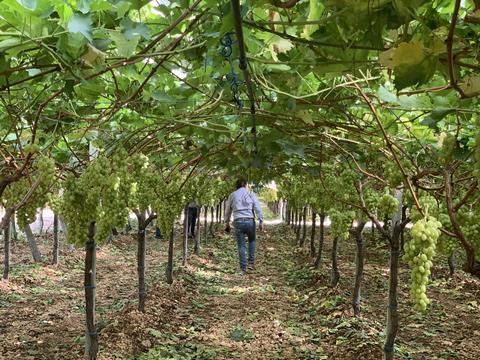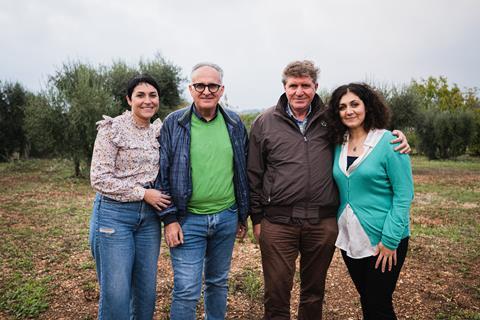Despite the current challenges, the grape sector in Italy’s Puglia region has huge potential, according to the Giacovelli family
How would you describe the state of the Puglia grape sector at present, both in terms of production and exports?
Giacovelli family: We experienced various challenges last season due to climate change, higher costs and new consumer behaviours, so you could feel a general sense of disappointment and a greater desire for change. There is great potential, as the Puglia grape sector is growing fast. Many are bringing innovation to their fields and processes, and we are ready to export to even more countries outside of Europe as soon as protocols are in place.
Are new varieties an important part of the innovation currently being seen in Puglia?
The Puglian sector is innovating fast and we are proud of it. First of all, the Agriculture 4.0 generation of producers is coming along and, despite the difficulties, they are investing in new varieties and technological solutions in the field. Moreover, older varieties are being replaced by new ones that are easier to colour and to grow, as well as being more commercially relevant. Both international breeders and the Italian breeding associations have been bringing their know-how to our territory. Puglia’s pedoclimatic conditions allow us to try out grape varieties in various types of soils and climates, enabling producers and marketers to anticipate and/or extend the commercial season.

Are producers receiving any government support to help mitigate rising costs?
The Italian government has started some national projects for new grape plantations, promoting Agriculture 4.0 and female entrepreneurship, both fundamental to our sector. Unfortunately, we have not seen any direct support against the rising costs: our electricity bill was pretty neat.
Do you expect the war in Ukraine to have a lasting impact on Puglia’s grape export business?
No, not if we manage to convert to renewable sources of energy in the long term and if we are able to redirect our products elsewhere. In 2022, we saw some indirect consequences of the war on some of Puglia’s best markets, causing consumers to buy differently. We will see what happens now.
What is the group doing to overcome these challenges?
We are acting in two ways: we are conducting a spending review to cut extra costs and analyse what can be improved, and we are innovating in both technology (such as Agriculture 4.0 machines and irrigation systems) and in grape varieties, in order to be more cost-efficient, while remaining competitive and up-to-date on the market.
What about the threat of climate change?
Climate change is still a question mark for us: thanks to higher temperatures in November we have been able to avoid the formation of mildew on some varieties, while having enough rainy days in October. Covering the grape fields definitely helps to prevent damage and we are also researching more climate-resistant varieties and modern irrigation systems.
We are investing a lot in creating a grape ecosystem together with our partners and producers through new varieties by IFG, SNFL, ARRA, Grape Evolution, NuVaUT, Grape&Grape and Rete IVC. We believe in bridging the potential of Puglian grapes with our customer’s needs. Each country and consumer type is different, so we tailor our strategy accordingly. We want to show everyone the potential of Puglia grapes, and we can do that if we really strive for it.




